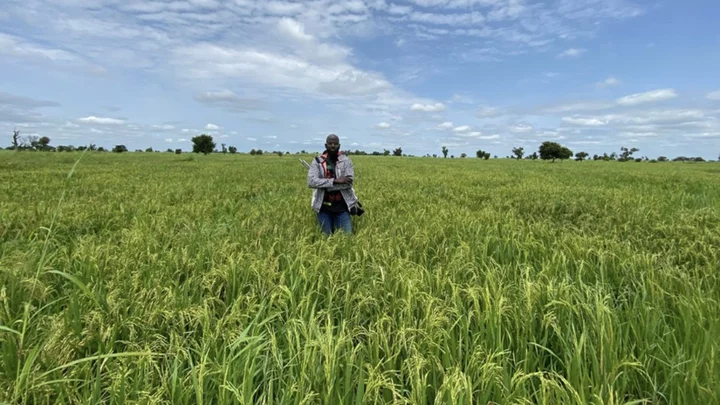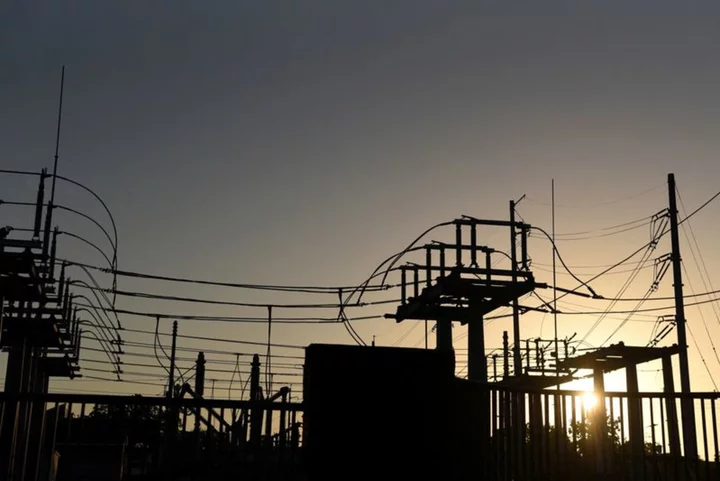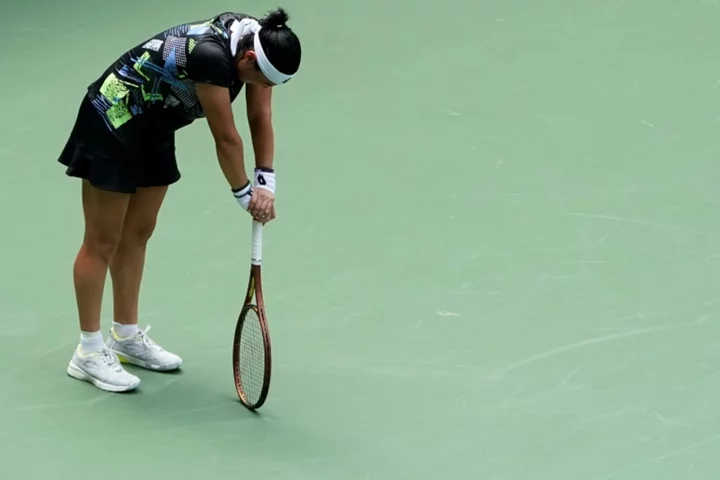The French government said Tuesday that it would soon shut down an activist climate group over a series of recent demonstrations including one that led to fierce clashes with police over a controversial irrigation project.
Government spokesman Olivier Veran accused the Uprisings of the Earth (SLT) coalition of encouraging violence at protests in March near Sainte-Soline in western France over irrigation.
"You don't dissolve an association because of its ideas. You dissolve it because there is violence or a risk for public safety," Veran told CNews television.
SLT has vowed to fight the shutdown order, saying on its website: "You cannot dissolve a movement. You cannot dissolve a revolt."
Veran said SLT "whipped up violence at Sainte Soline by inviting rioters, who came from across Europe with metal bars and petanque balls to try and kill police officers".
"The climate question does not justify throwing rocks at police in a field," he said.
SLT is a coalition of several activist associations, which was also behind a recent protest against a sand quarry in western France where protesters tore up fields and equipment at a farm.
The group was also one of several organisers of a banned demonstration at the weekend against a new rail link between the eastern city of Lyon and Turin in Italy.
It is part of a new wave of more radical climate activist groups including Extinction Rebellion which use direct action to underline their warnings about the dangers to the planet.
On Tuesday, prosecutors also said they had detained 14 people for questioning over vandalism at a protest supported by SLT, against a Lafarge cement plant near the southern city of Marseille.
Protesters called the company "one of the most destructive in the world".
- Policing in spotlight -
The dissolution of SLT was officially launched by the interior ministry just after the Sainte-Soline clashes in March, using powers that have been previously used to outlaw far-right and Islamist groups.
The decree is likely to be discussed at the government's weekly cabinet meeting on Wednesday, a source close to the issue said.
France has faced a wave of protests in recent months, mainly over a hotly contested decision to push back the retirement age, which have at times turned violent.
Some of the demonstrators have vandalised buildings and street furniture or thrown rocks at riot police.
Critics accuse authorities of fomenting tensions with heavy-handed policing tactics and aggressive confrontations with demonstrators.
Many in France were shocked by the scenes at Sainte-Soline, where around 5,000 protesters battled with more than 3,000 police officers.
Two protesters were left in a coma afterwards, while around 30 officers were injured.
The demonstrators were protesting against a giant reservoir for storing water pumped up from the underground water table.
Critics say it will penalise smaller farmers and the ecosystem, while benefitting mainly industrial agriculture groups.
France's Human Rights League (FDH) said afterward that "as soon as the demonstrators arrived at the reservoir site, police fired at them with weapons of war: tear gas grenades, stun grenades, explosive sting-ball grenades and rubber bullets".
"The deployment put everyone present at risk of serious harm," it said.
Earlier this month, United Nations experts urged France to review its policing practices, expressing concern at the "reported excessive use of force" against protesters, in particular at Sainte-Soline.
lum/arz/js/adp/rox









